Water Softener is an excellent way to remove hardness from your drinking water, which is a big issue in 85% of American households.
Hard water damages your pipeline and water-using appliances, leaving them with shortened lifespans and poor water quality.
Table of Contents
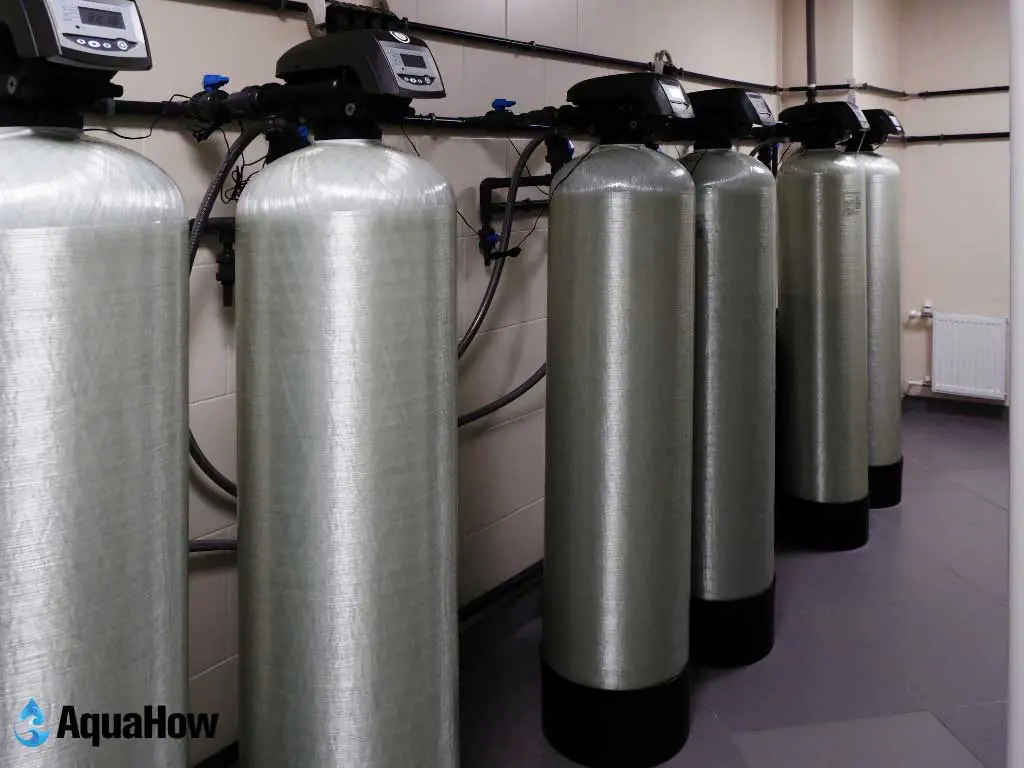
What Is A Water Softener?
Water softeners are appliances designed to remove excessive mineral buildup from your tap water. The tap water you have in your house may contain more calcium and magnesium than necessary.
Water softeners replace these minerals with potassium and sodium ions. As a result, your water becomes soft.
I know for a fact that hard water is a common issue in every house. Have you ever noticed a buildup on your showerheads and shower doors after prolonged use?
That’s hard water deposits. They do not peel off so easily. And if you do not clean the deposit, your appliances can be damaged.
The system does not allow this deposit buildup by providing soft water. When water goes through a water-softening tank, it leaves behind the excessive minerals that create water hardness.
So, the water-softening system breaks your hard water and provides you with soft sodium-infused water, which is beneficial for your house.
Learn About How Water Softeners Work
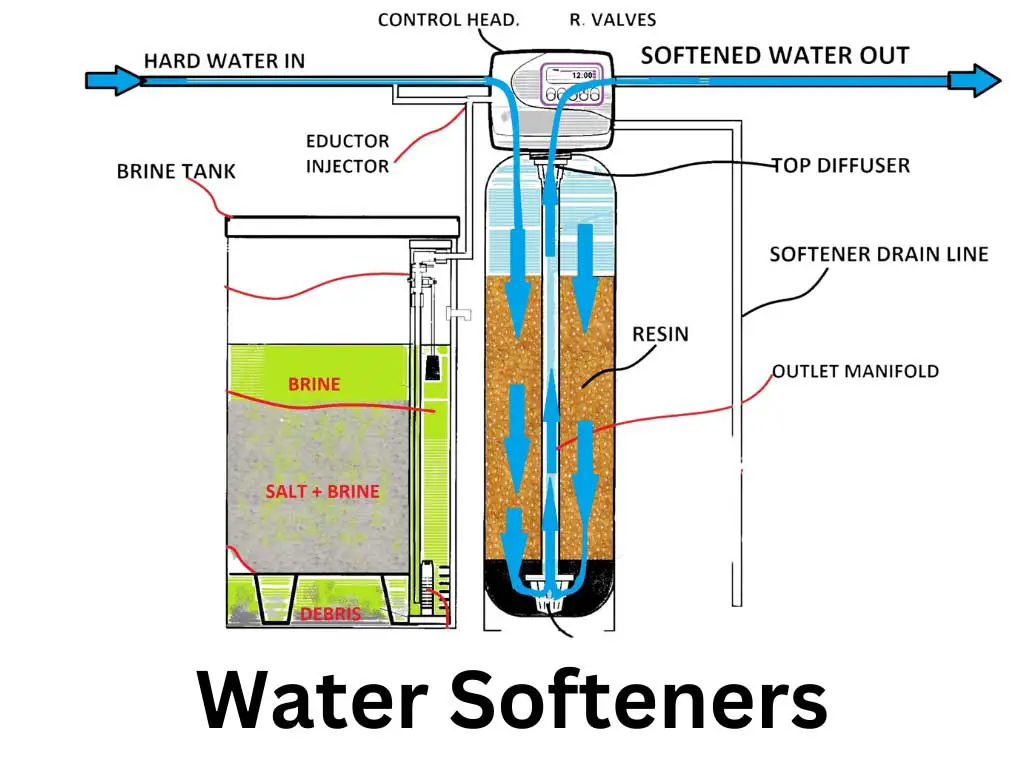
If you want to install a water softener system in your house, the first thing you should know is how it works. Several types of water softeners are available, each one of which has a different mechanism. However, the basic function is similar.
Typical water softeners come with a softener tank and a brine tank. The softener tank has resin beads sealed inside it and is connected to your house’s water supply line.
So, when the water goes into the softener tank, negatively charged resin beads attract the positively charged mineral, such as calcium and magnesium.
These dissolved minerals will stay attached to the resin beads, and softened water will go to your appliances and flow into your house. But when the beads reach their capacity, your water softener will start the regeneration process with salt refills.
The brine tank contains salty water, which will flow into the softener tank and wash away the mineral buildup from the beads. So, your softener appliance will break hard water and provide you with excellent water quality.
Key Benefits of Water Softener Systems
After using water-softening systems for quite some time, I can tell you about their real benefits. They come real handy in terms of treating water and protecting your home.
So, here are some key benefits of water-softening appliances:
Remove Minerals
Water softeners are your best shot at removing excessive minerals from your water. These minerals can harm your hair and skin.
So, the most important thing a softener will do is reduce minerals from very hard water.
Protect Your Plumbing System
Hard water eventually clogs your plumbing with scale buildup. A water softener will let soft water passes through your plumbing.
As a result, your water pressure will remain high, and you won’t have to hire a licensed plumber to fix it.
Prevent Mineral Buildup
As water softeners remove excessive minerals from water, you won’t see any mineral buildup anywhere in your house.
Mineral buildups can damage your water pipes, and showerheads, slowing down the water flow, or any other fixtures and hamper your water usage.
Save Your Appliances
Excessive minerals in your water can also damage your water-using appliances like your dishwasher, washing machine, water heater, etc. With scale buildup, they won’t be able to perform to their potential.
In the worst-case scenario, they can break down. But water softeners can save your appliances from minerals and hard water.
Decrease Soap Scum
Sometimes, hard water chemically reacts with soaps and detergents, creating a sticky residue on your sink, bathtub, toilet, etc.
You certainly won’t like water stains on them. So, a water softener will save you from this trouble.
Five Types of Water Softener Systems
After looking into all the major water softener systems, I found five types of them available in the market. All of these 5 types have different mechanisms and processes. So, you should be able to choose the right water softener system for your home.
Here are the five types of water systems:
Reverse Osmosis Water Softeners
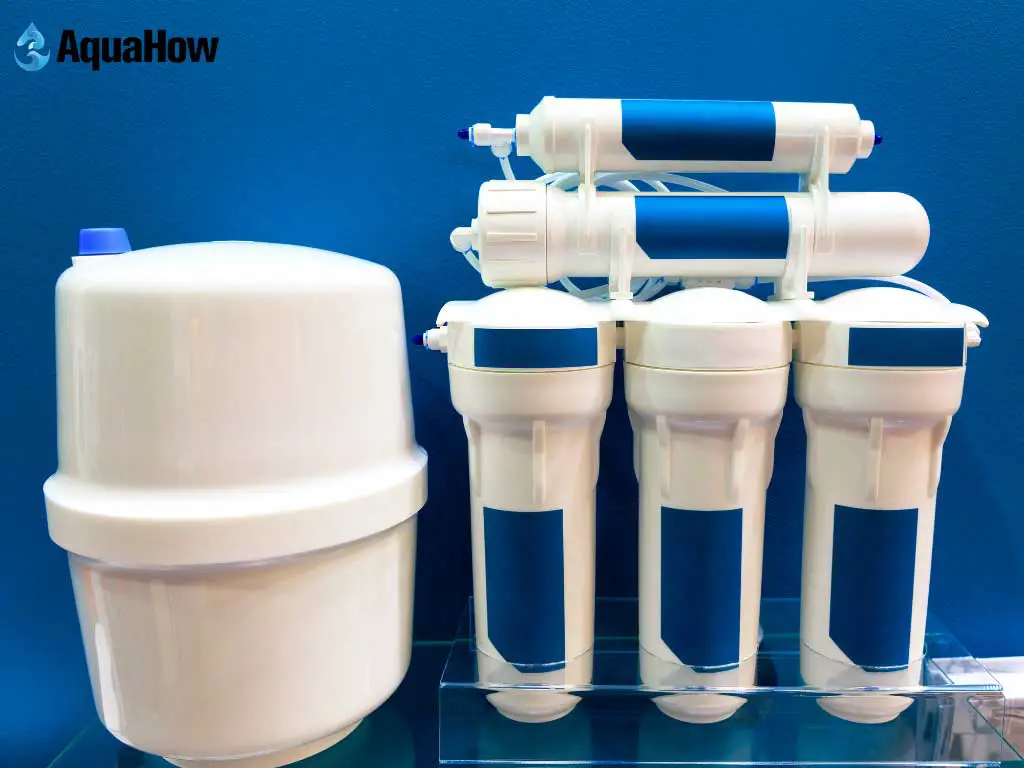
Reverse osmosis systems are one of the most high-end water softeners available in the market. It has a semipermeable membrane that uses high pressure to filter out minerals, nitrates, and even metals.
A typical reverse osmosis water softer comes with three cartridges; you can install them under your sink.
Apart from breaking hardness, it can also filter your water. With proper maintenance, you will be able to use this water softener for around 10 to 15 years. This softener generally has two variants: point-of-use and whole-home systems.
Price: $500 to $11,000
Salt Based Water Softeners
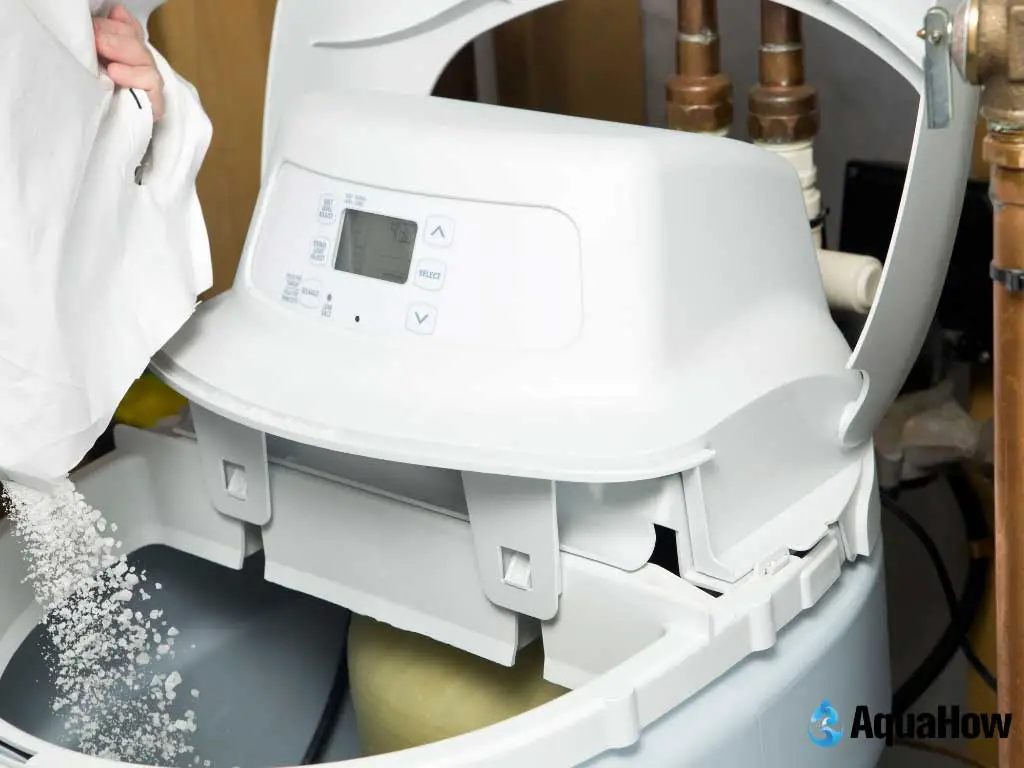
Salt-based water softener, otherwise known as ion exchange water softener, is the most commonly used softener that adds a little bit of salt after the ion exchange is completed. Its resin beads can filter out heavy minerals, such as calcium and magnesium.
Then it adds sodium and potassium and sends water to another tank to supply your house. You will have to regularly change the resin beads of this softener to get an adequate amount of soft water in your house. Salt-based water softener also lasts up to 15 years.
Price: $400 to $2500
Salt-Free Water Softener
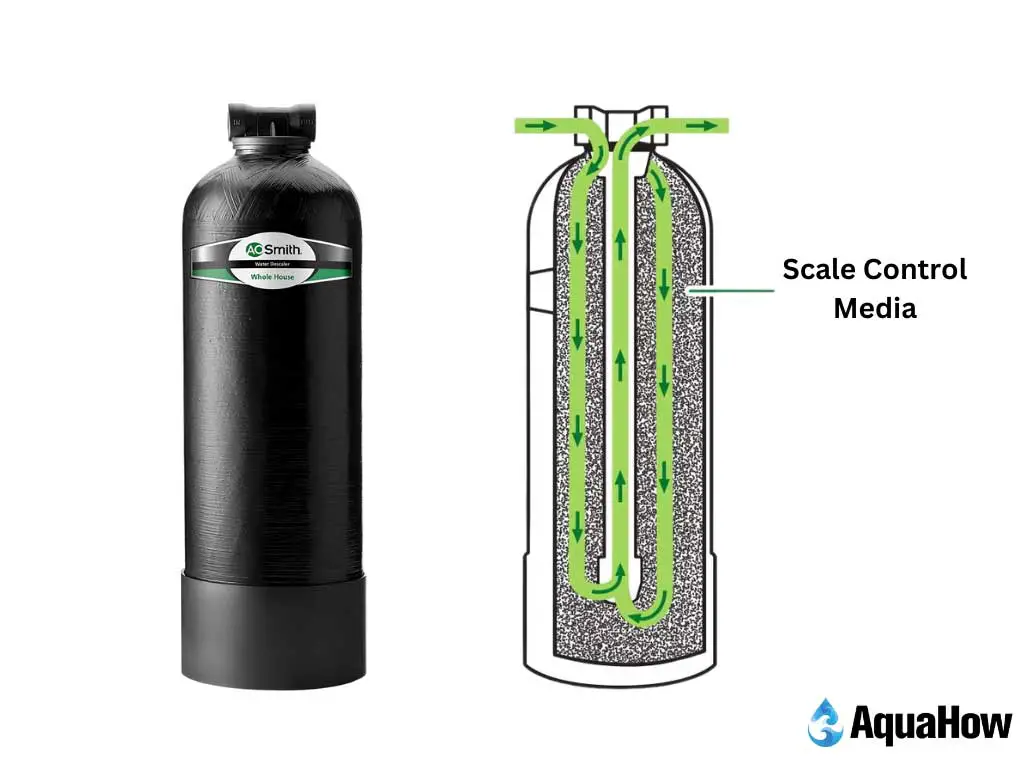
This water softener does not add salt to your water like the previous one. It uses TAC or Template-Assistant Crystallization process to remove minerals from your water. The softener has polymeric beads where minerals attach and turn into crystals, making your water soft.
A salt-free water softener has a compact size and is virtually maintenance-free. You can expect it to last about 10 years with proper care.
Price: $500 to $3,000
Magnetic Water Softeners

This water softener creates a magnetic field to eliminate the positive and negative charges or ions from the minerals. As a result, they lose the power to bind with each other and stay soluble inside the water.
Magnetic water softener installation is quite easy as the plug-and-play system is available. So, it’s a perfectly portable option as well.
Price: $200 to $500
Dual Tank Water Softeners
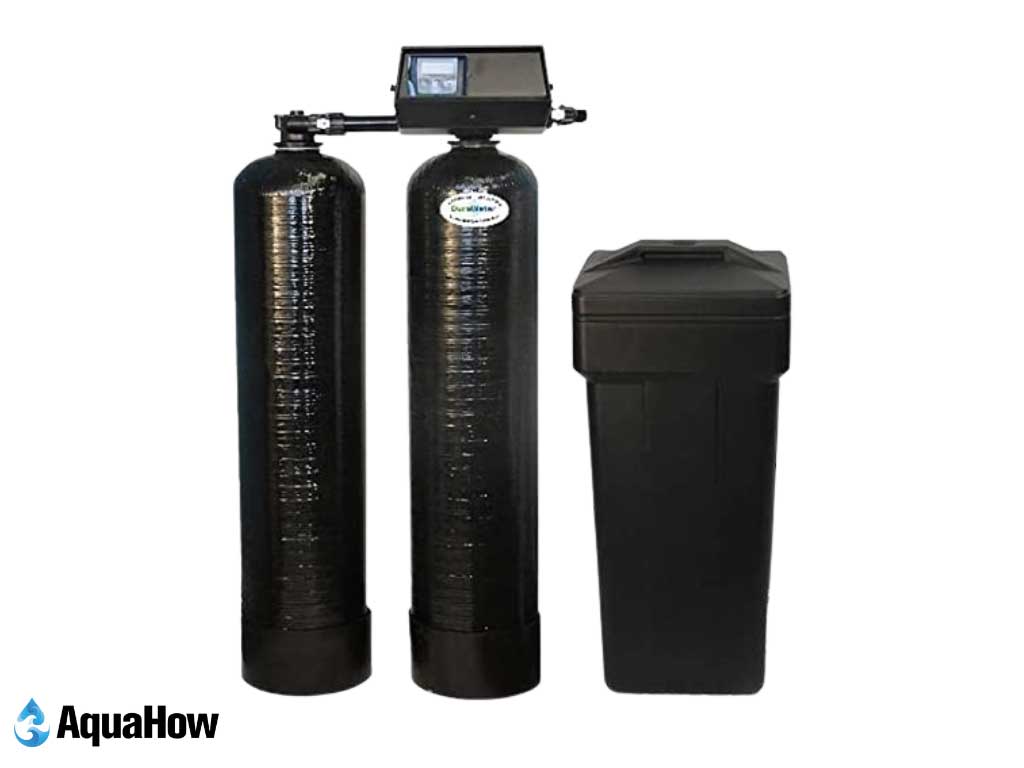
As you can understand from the name, this water softener system has two resin tanks and a brine tank. In fact, this is the only difference between a salt-based and dual-tank water softener. When one tank is already regenerating salt, the second tank also remains active.
This water softener is very big in size and will take up a lot of your space. However, you can use it for up to 15 years with proper care.
Price: More than $6,000
Should I choose a water softener or water softener alternatives?
It entirely depends on your average water usage, budget, purpose, space, and many other unique factors. Water softening systems effectively remove harmful minerals from your water, which can cause various health issues.
You do not need a water softener if you want to remove dangerous contaminants from your water. Its alternatives, like water filters, conditioners, or descalers, will be better suited for the job. They can remove contaminants more effectively than a water softener.
But if you want to remove minerals from your hard water and turn it into soft water, you must use a water-softening system. The alternatives of this appliance won’t be able to perform this task.
However, you should know that the alternatives to water-softening systems are more easily manageable because they do not require any replenishment. Plus, they do not consume any electricity or power as well.
FAQs
What is the downside of a water softener?
Water softener adds additional sodium ions to your softened water, which can be potentially harmful to your body. It can cause dry skin and kidney diseases. So, it’s risky for people with low sodium diets.
Is it worth putting in a water softener?
A water softener system is beneficial in many ways. It removes the hardness level from your water. Meaning it won’t allow minerals, which will enhance the lifespan of your appliances and pipes. Plus, water softeners will also protect your hair and skin from drying.
Is it OK to drink softened water?
As a general rule, softened water is considered safe drinking water. Apart from some exceptions, you can drink water from softener without causing any health issues. However, it contains a high amount of sodium which can increase your blood pressure and cause kidney diseases in some cases.
What exactly does a water softener do?
A water softener has a softener tank and a brine tank that removes hardness from your water by removing the calcium, magnesium, etc., minerals from your water, replacing them with sodium and potassium. It has resin beads that filter out those minerals through ion exchange.
Final Thoughts
People invest in water softeners because they protect you from hard water and save money in many ways.
So, to have access to safe drinking water for regular use, I highly recommend you have it in your house without any second thought.

